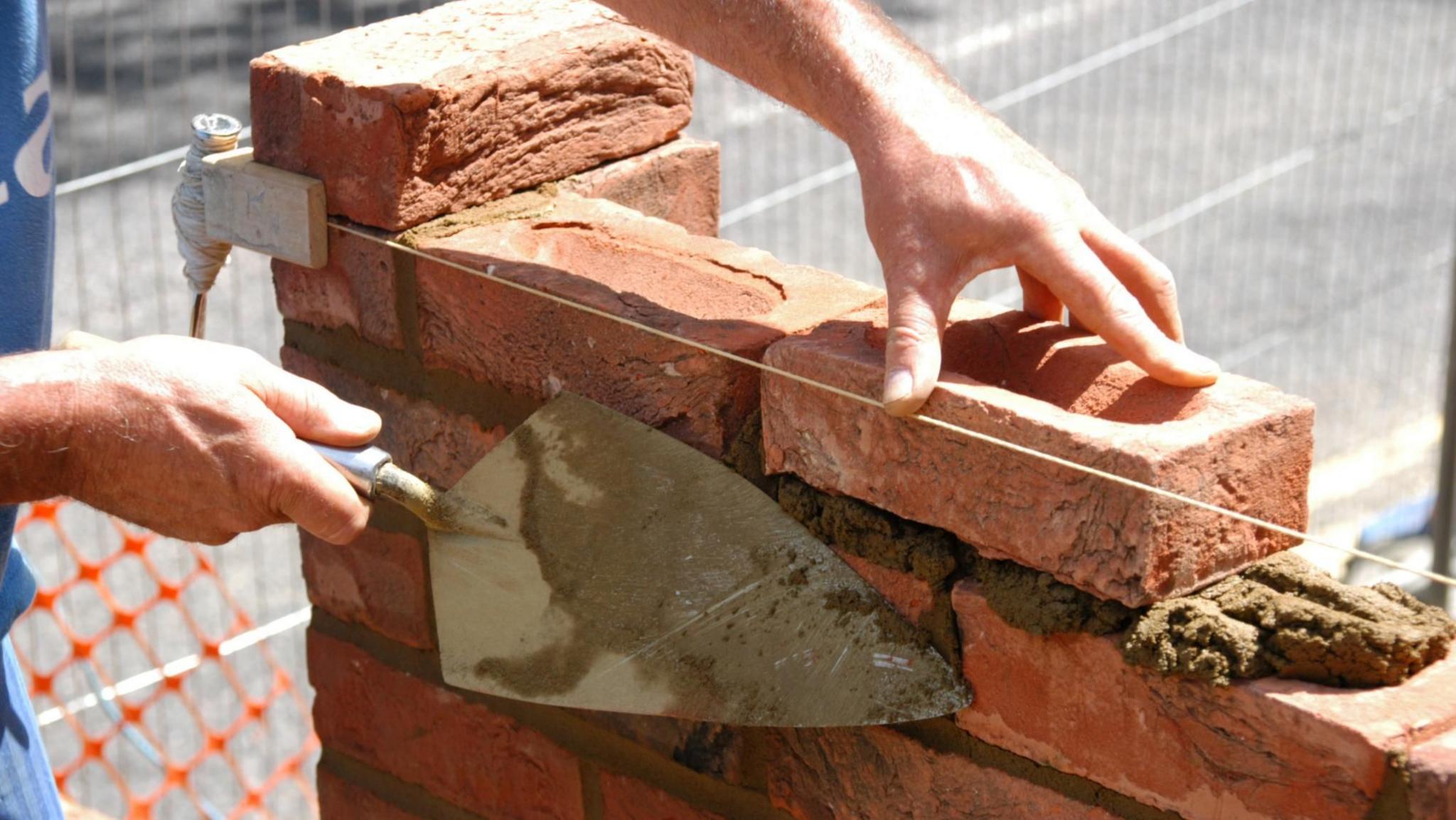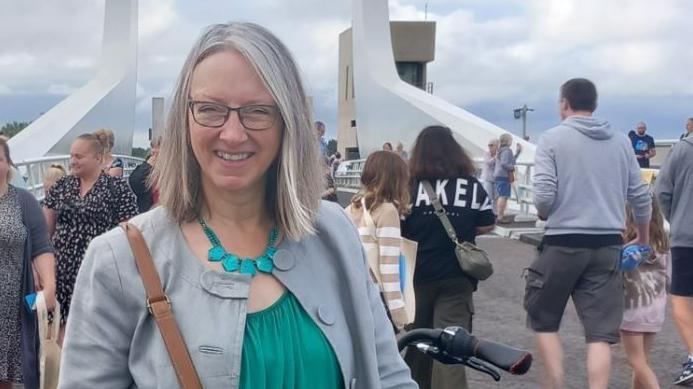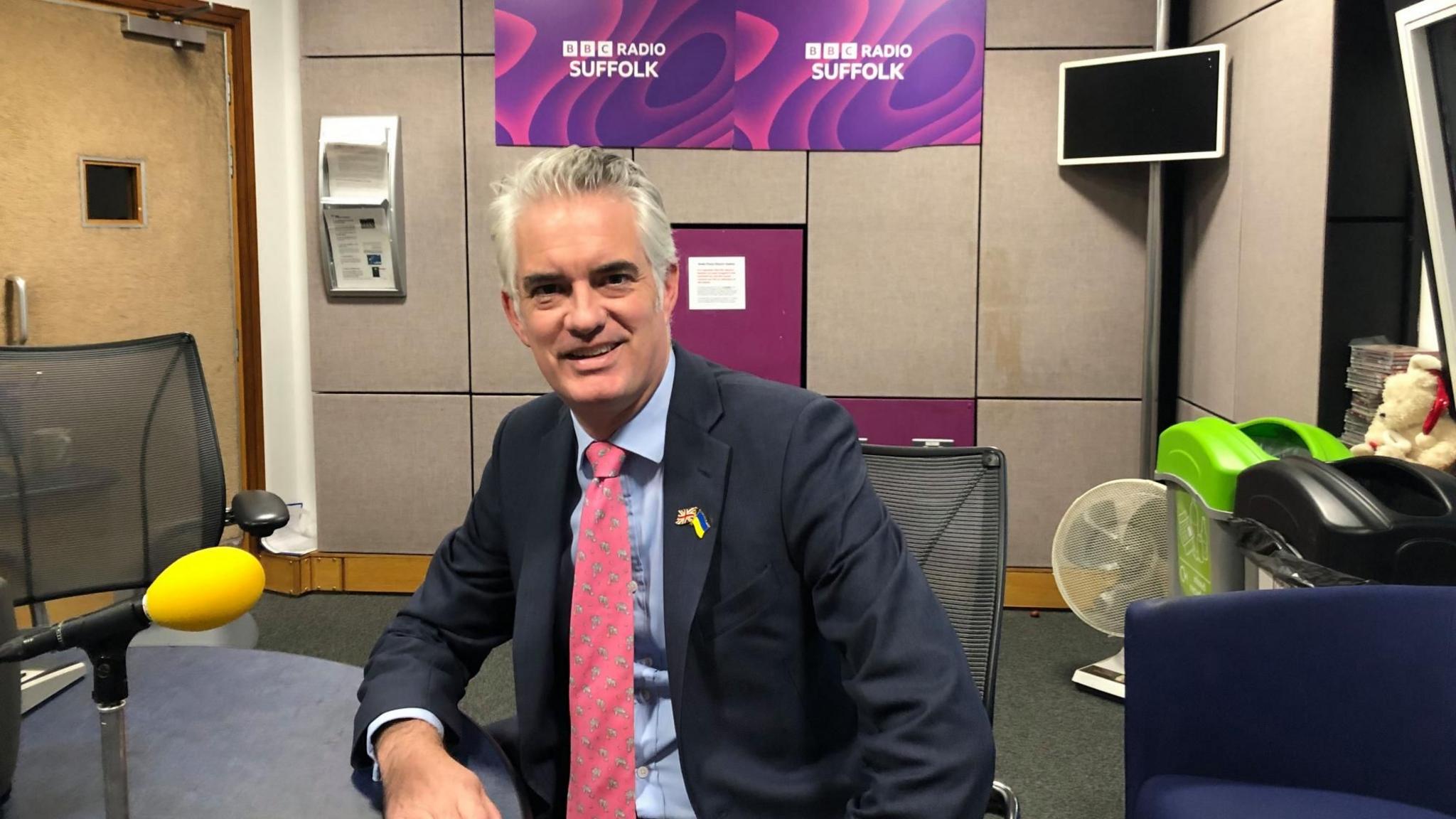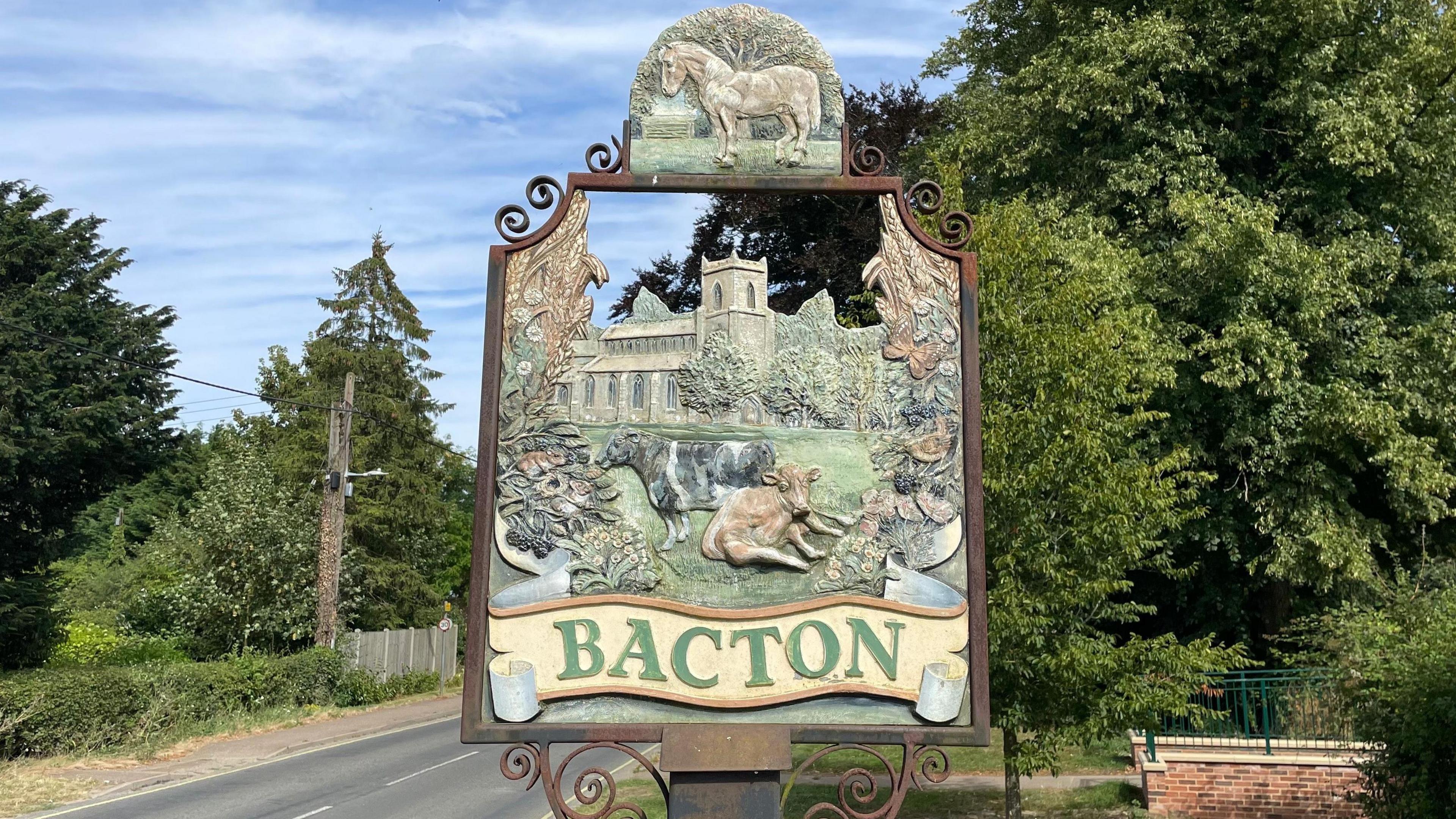Councils are 'not Nimbys' as housing targets soar

The government wants 5,140 new homes a year to be built across Suffolk until 2029
- Published
Councils that have criticised the government for more than doubling their housing targets in some cases say they are "not Nimbys" (not in my backyard).
Figures from all five of Suffolk’s councils responsible for planning show the government has asked for 5,140 new homes a year until 2029 across the county, when the previous target was 3,120.
East Suffolk Council's leader Caroline Topping, from the Green Party, said it would "inevitably put pressure on some of the most beautiful areas of the country".
The government has said reforms were needed in the planning system if it was to achieve its pledge of building 1.5 million homes over the next five years.
Figures collated by the BBC show how housing targets have risen:
Babergh – 416 to 763
East Suffolk – 905 to 1,696
Ipswich – 466 to 755
Mid Suffolk - 535 to 753
West Suffolk – 800 to 1,200
That represents a 65% increase across Suffolk in the number of new houses.

Caroline Topping said the new targets would increase the "pressure on some of the most beautiful areas of the country"
District/borough councils have been responding to the Labour government’s consultation on planning reforms, external, which closed last month.
Topping has written to housing and planning minister Matthew Pennycook, expressing her fears that planning reforms could have negative impacts on "natural and sensitive environments", which would “undermine community confidence in the plan-led system".
"These are not the concerns of a Nimby council," she said.
"Whilst the council welcomes many of the proposed changes, the overriding message is our serious concerns.
"The uplift in housing numbers would inevitably put pressure on some of the most beautiful areas of the country, including SSSIs [sites of special scientific interest] and National Landscapes [legally designated as Areas of Outstanding National Beauty, external]."
Each council needs to develop local plans, external outlining the number of houses they are going to build over the next five years.
These plans are used to try to ensure sustainable development for communities.

James Cartlidge MP discussed housing targets during a live "hot seat" interview on BBC Radio Suffolk last week
Conservative MP for South Suffolk, James Cartlidge, said: "Labour have imposed a massive new target for us to achieve and I worry that we’ll end up in a situation where we don’t get a local voice to where housing goes, it will just be imposed on us.
“The last time a very high target was set for Babergh district, all that happened in practice was, because it’s not deliverable, developers can come along and say in court that essentially this council isn’t delivering the numbers the government told it to, so we should now be able to build where we want to, and this is called speculative development.
"That’s what happened last time."
Rayner sets new housing targets in planning overhaul
- Published30 July 2024
Labour's plan to build 1.5m homes – can it be delivered?
- Published26 September 2024
The village almost doubling after developer 'free-for-all'
- Published27 August 2024
The Housing Secretary Angela Rayner has previously said housing targets were watered down by the Conservatives in 2022, but Labour would make them mandatory again.
She admitted her plans “won’t be without controversy”, but changes were required to make housing more affordable.
Conservative-run Suffolk County Council, which is not a planning authority for new homes but does have responsibility for highways, schools and waste, says it fears there is a lack of clarity around the funding for infrastructure if these new home targets are to be met.
Chris Chambers, cabinet member for transport strategy, planning and waste, said: "Such a significant uplift in new homes in Suffolk, if not accompanied by the correct funding for affordable homes and infrastructure, will ring alarm bells with local residents."
A spokesperson for the Ministry of Housing, Communities & Local Government said all parts of the country "must play their part in ending the housing crisis, but our ambitious plans to build 1.5 million homes will not come at the expense of the environment or protected green spaces".
"We’re committed to maintaining strong protections on agricultural land and we are taking a brownfield-first approach so sites which people are desperate to see used will be developed first," they said.
"We are also working across government and with industry to build a diverse housebuilding workforce that is fit for the future.”
Get in touch
Do you have a story suggestion for Suffolk?
Follow Suffolk news on BBC Sounds, Facebook, external, Instagram, external and X, external.
- Published27 August 2024
